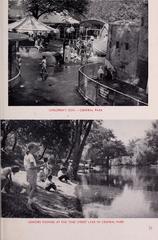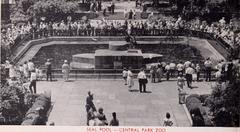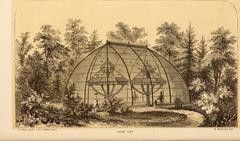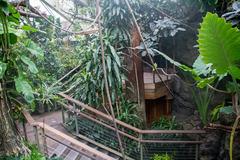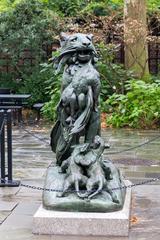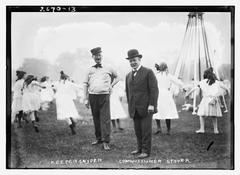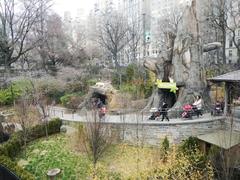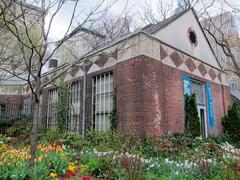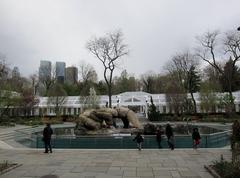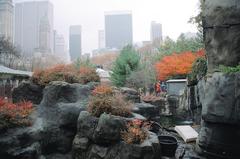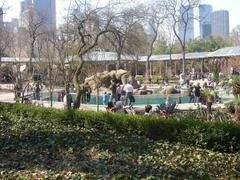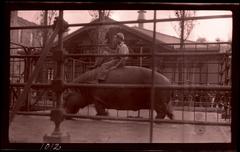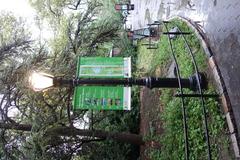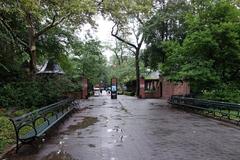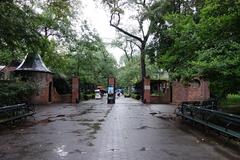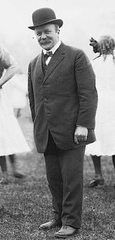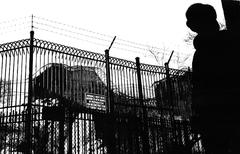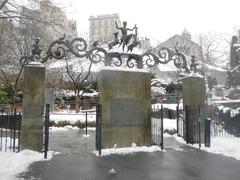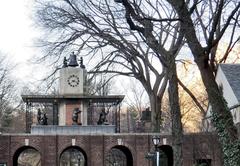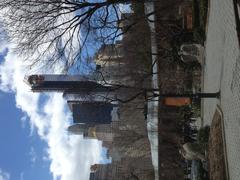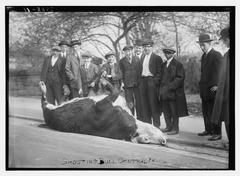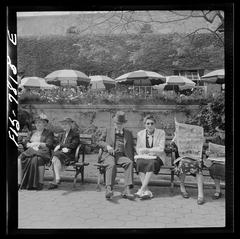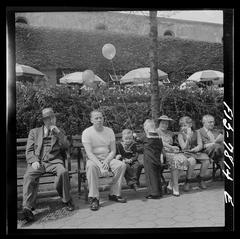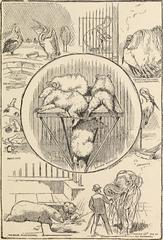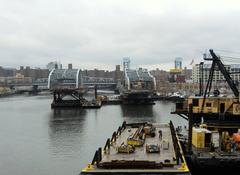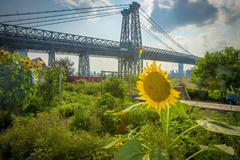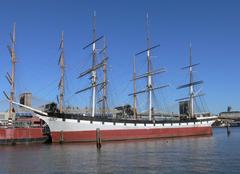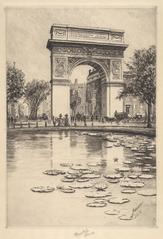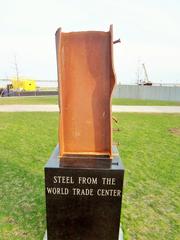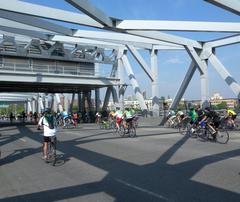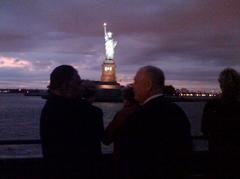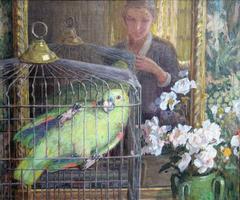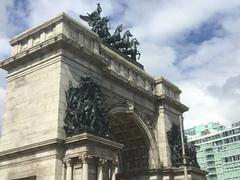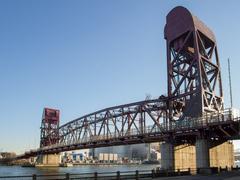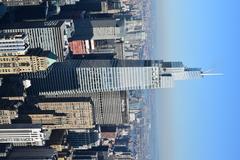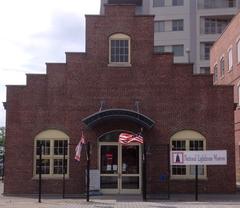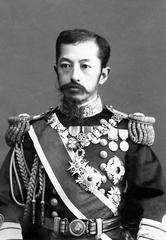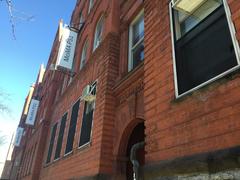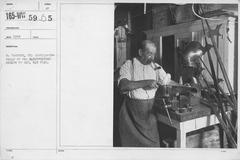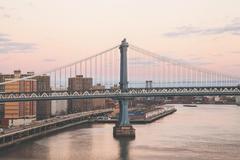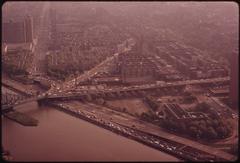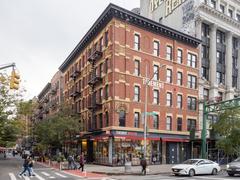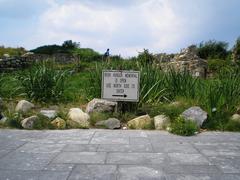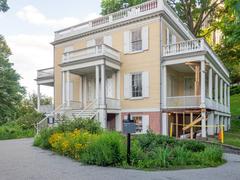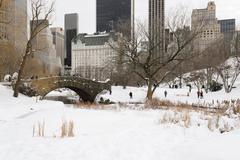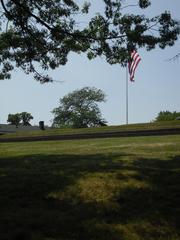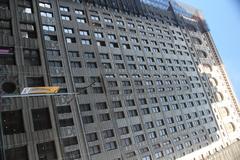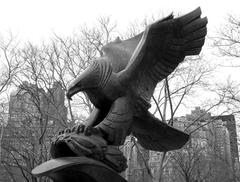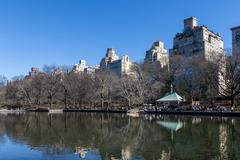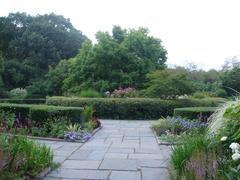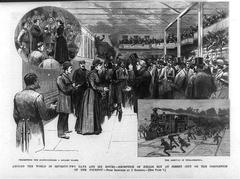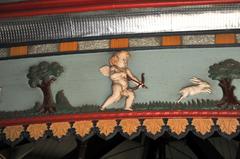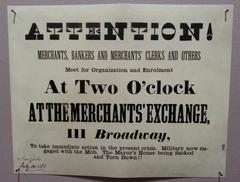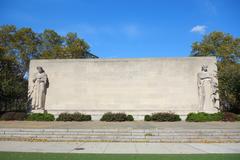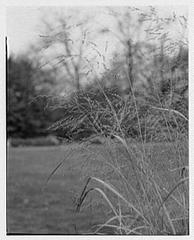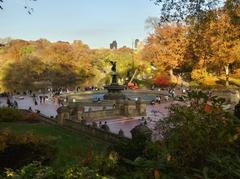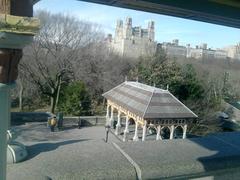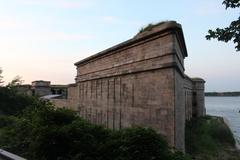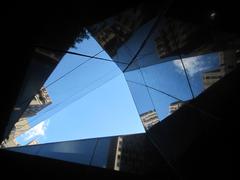
Comprehensive Guide to Visiting Central Park Zoo, New York City, United States
Date: 17/07/2024
Introduction
Central Park Zoo, located in the heart of New York City’s Central Park, is not just a place to see exotic animals but also a historical landmark reflecting the city’s evolution in wildlife conservation and public recreation. Officially established in 1864, the zoo has undergone significant transformations, from the early collection of animals in the 19th century to its modern state-of-the-art facilities today. Managed by the Wildlife Conservation Society (WCS) since 1980, the zoo now focuses on creating naturalistic habitats and promoting conservation education. This guide provides a comprehensive overview of Central Park Zoo, including its history, visitor information, nearby attractions, and special events, ensuring visitors can make the most of their visit (Central Park Zoo).
Table of Contents
- [Introduction](#introductionintroduction)
- [History of Central Park Zoo](#history-of-central-park-zoohistory-of-central-park-zoo)
- [Early Beginnings](#early-beginningsearly-beginnings)
- [Formal Establishment](#formal-establishmentformal-establishment)
- [Mid-20th Century Developments](#mid-20th-century-developmentsmid-20th-century-developments)
- [Major Renovation in the 1980s](#major-renovation-in-the-1980smajor-renovation-in-the-1980s)
- [Recent Developments](#recent-developmentsrecent-developments)
- [Visitor Information](#visitor-informationvisitor-information)
- [Visiting Hours](#visiting-hoursvisiting-hours)
- [Ticket Prices](#ticket-pricesticket-prices)
- [Travel Tips](#travel-tipstravel-tips)
- [Nearby Attractions](#nearby-attractionsnearby-attractions)
- [Special Events and Guided Tours](#special-events-and-guided-toursspecial-events-and-guided-tours)
- [Photographic Spots](#photographic-spotsphotographic-spots)
- [Accessibility](#accessibilityaccessibility)
- [FAQ](#faqfaq)
- [Conclusion](#conclusionconclusion)
- [References](#referencesreferences)
History of Central Park Zoo
Early Beginnings
The origins of the Central Park Zoo can be traced back to the mid-19th century. In 1859, New York City received a gift of 72 white swans from the United Kingdom, housed in Central Park. This event marked the unofficial beginning of the zoo. By 1864, the collection had grown to include a variety of animals, and the Central Park Menagerie was formally established, making it the first official zoo in New York City.
Formal Establishment
The Central Park Menagerie quickly became a popular attraction, and in 1934, it underwent a significant transformation. Under the direction of Robert Moses, the then-Parks Commissioner, the menagerie was renovated and expanded. The new facility, designed by architect Aymar Embury II, was officially opened to the public on December 2, 1934, and was renamed the Central Park Zoo. This renovation was part of a larger effort to modernize New York City’s parks and recreational facilities during the Great Depression.
Mid-20th Century Developments
Throughout the mid-20th century, the Central Park Zoo continued to evolve. In the 1960s, the zoo faced criticism for its outdated facilities and inadequate animal care. This led to a series of reforms aimed at improving the living conditions for the animals and enhancing the visitor experience. Despite these efforts, the zoo struggled to keep pace with modern zoological standards.
Major Renovation in the 1980s
A major turning point for the Central Park Zoo came in the 1980s. In 1980, the Wildlife Conservation Society (WCS) took over the management of the zoo. The WCS embarked on an ambitious $35 million renovation project, which aimed to transform the zoo into a state-of-the-art facility focused on conservation and education. The renovation included the construction of new, naturalistic habitats designed to mimic the animals’ natural environments.
The newly renovated Central Park Zoo reopened on August 8, 1988. The revamped zoo featured three main exhibit areas: the Tropic Zone, the Temperate Territory, and the Polar Circle. These exhibits showcased a diverse array of species, from tropical birds and reptiles to polar bears and penguins. The renovation also included the addition of educational programs and interactive exhibits aimed at engaging visitors and promoting wildlife conservation.
Recent Developments
In recent years, the Central Park Zoo has continued to innovate and expand its offerings. In 2014, the zoo opened the Allison Maher Stern Snow Leopard Exhibit, which provides a spacious and enriching environment for these endangered big cats. The exhibit features rocky outcrops, climbing structures, and a waterfall, designed to replicate the snow leopards’ natural habitat in the mountains of Central Asia.
The zoo has also embraced technology to enhance the visitor experience. In 2017, the Central Park Zoo introduced a mobile app that provides visitors with interactive maps, animal facts, and information about daily events and activities. The app also includes augmented reality features, allowing visitors to engage with the exhibits in new and exciting ways.
Visitor Information
Visiting Hours
The Central Park Zoo is open year-round, with seasonal variations in visiting hours. Generally, the zoo is open from 10:00 AM to 5:00 PM during the winter months and from 10:00 AM to 5:30 PM during the summer months. It’s always a good idea to check the official Central Park Zoo website for the most up-to-date visiting hours before planning your visit.
Ticket Prices
Ticket prices for the Central Park Zoo vary depending on age and group size. As of the latest update, general admission prices are as follows:
- Adults (13+): $19.95
- Seniors (65+): $16.95
- Children (3-12): $14.95
- Children under 3: Free
Discounts are available for groups, and membership options provide unlimited access to the zoo and other Wildlife Conservation Society parks. Tickets can be purchased online or at the zoo entrance.
Travel Tips
The Central Park Zoo is easily accessible by public transportation. Visitors can take the subway to the 59th Street-Columbus Circle station (A, B, C, D, and 1 trains) or the 5th Avenue-59th Street station (N, R, and W trains). Several bus routes also stop near the zoo’s entrance.
For those driving, parking is available at nearby garages, but spaces can be limited, especially on weekends and holidays. It’s often more convenient to use public transportation or ride-sharing services.
Nearby Attractions
The Central Park Zoo is located within Central Park, which offers a wide range of attractions and activities. Some nearby highlights include:
- The Central Park Conservatory Garden: A beautiful formal garden located just a short walk from the zoo.
- Bethesda Terrace and Fountain: One of the most iconic spots in Central Park, perfect for photos and relaxation.
- The Central Park Carousel: A historic carousel that delights visitors of all ages.
Special Events and Guided Tours
The Central Park Zoo hosts a variety of special events throughout the year, including seasonal celebrations, wildlife talks, and family-friendly activities. Check the zoo’s website for the latest event listings and details.
Guided tours are also available, offering an in-depth look at the zoo’s exhibits and conservation efforts. These tours provide a unique opportunity to learn more about the animals and the zoo’s mission from knowledgeable guides.
Photographic Spots
Photography enthusiasts will find plenty of picturesque spots within the Central Park Zoo. Some popular photo locations include:
- The Tropic Zone: Capture vibrant images of tropical birds and lush greenery.
- The Allison Maher Stern Snow Leopard Exhibit: Get stunning shots of these majestic big cats in their naturalistic habitat.
- The Sea Lion Pool: Snap action shots of sea lions swimming and playing.
Accessibility
The Central Park Zoo is committed to providing an accessible experience for all visitors. The zoo is wheelchair accessible, with ramps and elevators available throughout the facility. Wheelchairs can be rented at the zoo entrance on a first-come, first-served basis.
The zoo also offers sensory-friendly resources, including sensory maps and quiet spaces, to ensure a comfortable visit for guests with sensory sensitivities.
FAQ
What are the Central Park Zoo visiting hours? The zoo is open from 10:00 AM to 5:00 PM during the winter months and from 10:00 AM to 5:30 PM during the summer months. Check the official website for the most up-to-date hours.
How much are tickets to the Central Park Zoo? General admission prices are $19.95 for adults, $16.95 for seniors, and $14.95 for children. Children under 3 are free.
Is the Central Park Zoo wheelchair accessible? Yes, the zoo is wheelchair accessible, with ramps and elevators available throughout the facility.
Are there guided tours available? Yes, guided tours are available and provide an in-depth look at the zoo’s exhibits and conservation efforts.
Conclusion
The Central Park Zoo stands as a testament to the enduring appeal of urban zoological parks and the importance of wildlife conservation. From its humble beginnings as a menagerie to its current status as a world-class zoo, the Central Park Zoo has continually adapted and evolved to meet the changing needs of its animals and visitors. Plan your visit today to explore the rich history, diverse wildlife, and engaging experiences that the Central Park Zoo has to offer. Don’t forget to download the zoo’s mobile app for interactive maps and augmented reality features to enhance your visit.
